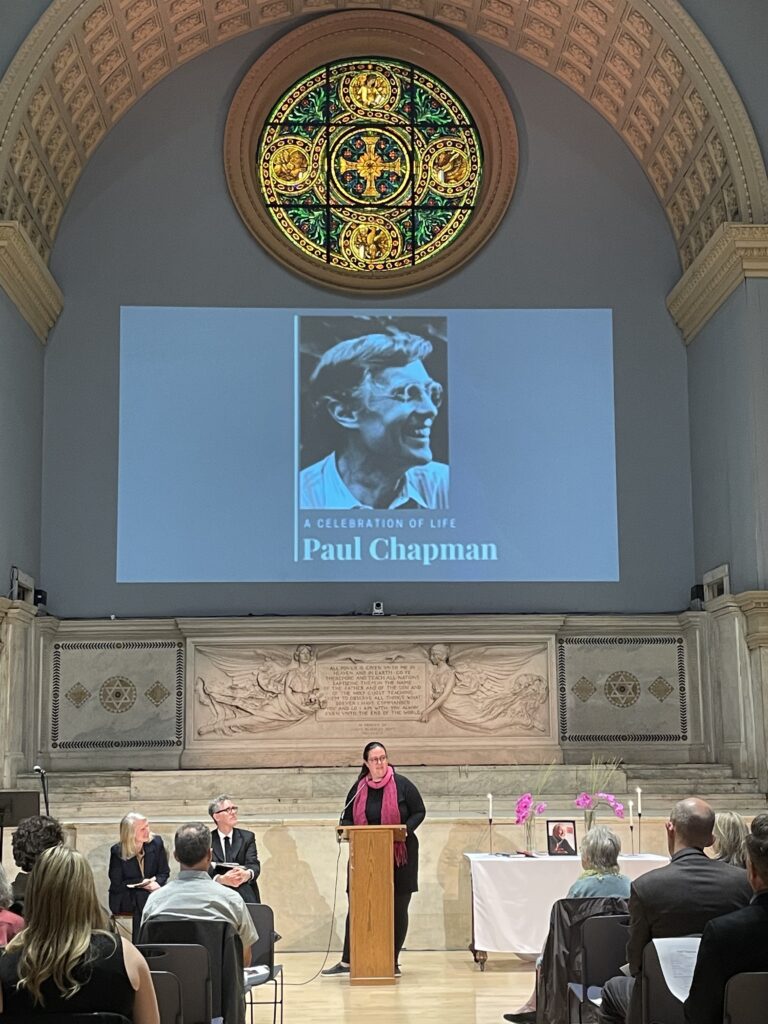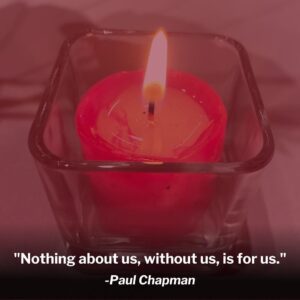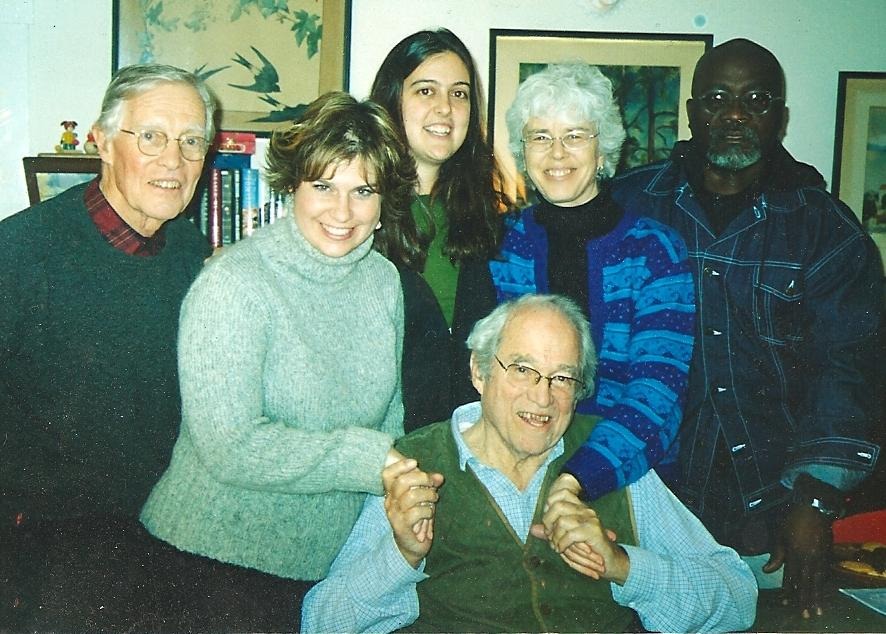
Remarks by Rev. Dr. Liz Theoharis
Judson Memorial Church
April 22, 2023
Paul and I met and started working together back in the 1990s. When our raggedy and yet powerful group of poor and homeless families marched into NYC on the 1997 March for Our Lives from the Liberty Bell to the UN, the 1998 New Freedom Bus Tour, the 1999 March of the Americas, Paul was there hosting us – finding churches to stay in, community leaders to meet with, volunteers to feed us, and engaging in discussions about the people leading the way with faith communities as moral standard-bearers.
Paul would do what Black Freedom Struggle leader Ella Baker called the spade work – the slow and often overlooked work of building trust, caring for people, planting seeds and tilling the ground for movement building. Those small, daily tasks that make up deep organizing work and the reminder that every single organizing engagement—no matter how small—is a fundamentally important part of how we build toward collective liberation.
And when you engaged Paul more, a flood of lessons and experience from seafarers rights organizing, welfare rights organizing and a life committed to racial and economic justice would come pouring through.
I have so many things to say about Paul. And so many stories and images of him.
Whether it’s picking up a large pizza from Ben’s Pizzeria to bring here to Judson for an unemployed workers support group every Monday night for years following September 11.
Or compiling a “Where do we go?” pamphlet and guidebook for people in need on where to find food, housing, legal help, immigration help and other necessities to make it in this wealthy city that has so many poor and marginalized.
Or convening faith leaders and grassroots community members to critique charitable choice and welfare reform and marriage promotion and the complicity of people of faith in immoral public policy and then taking a powerful stand against it.
Or producing The Employment Project’s beloved “No More Jobs” newsletter with book reviews, analysis and calls to action about the changing nature of work and how to respond to economic inequality.
Or going to all kinds of meetings and events, with the Urban Justice Center and the Riverside Church and also what he called a gathering of the wooly mammoths- a group of retired ministers and long time moral activists who would gather to talk about movement work in history and today. So many meetings and events, he always showed up.
I think of Paul conducting a study of 30 of the most recognized seminaries to explore who was equipping faith leaders to address poverty and economic injustice only to find that we needed to do it ourselves since none were – especially from the perspective of the poor and dispossessed.

And through all those there was always the wooden roll top desk and futon to be able to both rest through power naps and then get up to keep plugging away to build a movement. Not to mention the sign that said “Stop Working” when you walked into the office to remind us that God created sabbath, jubilee, love and joy!
I believe it was Jackie Robinson who said a life is really important in the impact it has on others. And I believe all of us gathered and the thousands upon thousands of people impacted by Paul is the deep story, the true story of Paul K Chapman.
It’s a story of Paul’s unflagging support, willingness to do that spade work, using all the connections he had (and he had many), tenacity in the face of challenges and outright “nos” to keep on keeping on all to the benefit of grassroots movements of change from the bottom up.
I think particularly of Paul suggesting after hearing how seminary colleagues were wondering what people of faith and faith communities could do in light of growing injustice and inequality – he said we need movement, we need energy and action. We need initiative and then suggested a name and idea – it should be a poverty initiative!
And right then and there, 20 years ago, he said let’s go talk to Union Theological Seminary’s president about becoming a model for this. When we got the answer no – or really that we needed to raise $5 million and endow a chair on poverty – he wasn’t deterred but enlisted his friend William Sloane Coffin to convince his friends Joe Hough and Bill Moyers that there could be no movement without efforts led by those most impacted and that if Union couldn’t do this for the movement then Union and progressive Christianity would have failed.

Paul believed all this (The Employment Project, National Welfare Rights Union, Picture the Homeless, Poverty Initiative, Kairos Center, and Poor People’s Campaign) was the next step in building a justice movement. He was an architect in a broad based movement that is still growing today- a movement that brings together domestic workers and unemployed fathers, families without healthcare, striking immigrants, and kids who worry about guns and water shut offs and being evicted and people across so many lines of difference and division but who are uniting and organizing together.
This long-time civil rights, welfare rights, and seafarers rights activist, the Director of The Employment Project and Co-Founder of the Poverty Initiative and the Kairos Center, brought his ground-breaking work building bridges between Protestant and Catholic communities and Southern and Northern civil rights struggles to help organize immersion trips and publish our ideas and experiences. He served as the field education supervisor for many of us. He got denominational leaders from the UMC, American Baptists, UCC, PC(USA) and others involved in the work of ending poverty and supporting economic justice. He and his beloved Gayle moved to Scotland for a few years to deepen the connection with the Church of Scotland and the Priority Areas Project. And when he returned he kept spreading the good news that God does not condone poverty but judges nations that legislate evil and deprive the poor of their rights, making homeless children their prey.
Perhaps the most important lesson I learned from Paul was about this idea of kairos – moments in time, in history – when you can’t but decide to give your life to the struggle, to change, to justice. This is the life that Paul gave.
Rest in peace and power, Paul K. Chapman!